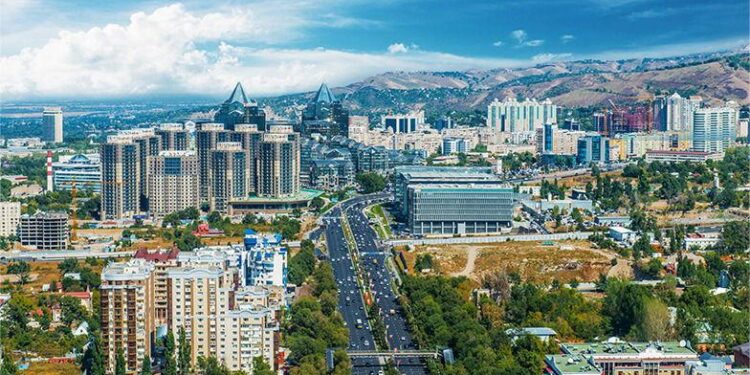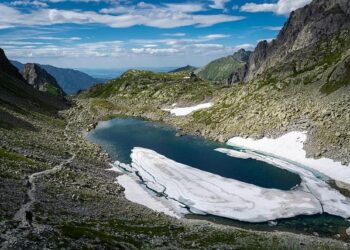Kazakhstan, one of the world’s leading uranium producers, is poised to expand its nuclear fuel exports to Finland, according to recent statements from industry and government officials. The prospective trade partnership signals a strategic move amid growing demand for clean energy sources in Europe, as Finland seeks to diversify its uranium supply amid shifting geopolitical landscapes. This development underscores Kazakhstan’s pivotal role in the global nuclear market and highlights evolving energy cooperation between Central Asia and Northern Europe.
Kazakh Uranium Exports to Finland Could Strengthen Bilateral Energy Ties
Kazakhstan is emerging as a potential key supplier of uranium to Finland, signaling a new chapter in energy cooperation between the two countries. With Finland’s commitment to expanding its nuclear energy capabilities as part of a broader strategy to reduce carbon emissions, securing diversified and reliable sources of uranium has become a strategic priority. Kazakhstan, one of the world’s largest uranium producers, offers an abundant and stable supply, which could help Finland strengthen its energy security while supporting its climate goals.
Experts highlight several potential benefits of this prospective partnership:
- Stable Supply Chain: Kazakhstan’s vast uranium reserves ensure consistent delivery to meet Finland’s growing demands.
- Economic Diversification: This arrangement may open avenues for increased trade and investment between the two nations.
- Strategic Energy Autonomy: Finland can lessen its reliance on traditional energy imports by integrating Kazakh uranium into its fuel mix.
| Key Aspect | Kazakhstan | Finland |
|---|---|---|
| Uranium Reserves | ~850,000 tons (world’s largest) | – |
| Annual Uranium Production | ~24,000 tons | – |
| Nuclear Reactors | – | 5 operational reactors |
| Energy Strategy | Export-driven growth | Carbon-neutral by 2035 |
Strategic Implications for Europe’s Nuclear Fuel Supply and Energy Security
Europe’s reliance on a diverse and stable uranium supply has become increasingly critical amid shifting geopolitical dynamics and rising energy demands. Kazakhstan’s potential role as a key uranium exporter to Finland signifies more than just a commercial partnership-it represents a strategic pivot towards enhancing energy security across the continent. This development could reduce Europe’s dependency on traditional suppliers known for political volatility, while bolstering the continent’s commitment to nuclear energy as a low-carbon power source in line with climate goals.
Integrating Kazakh uranium into Europe’s nuclear fuel cycle offers tangible benefits, including:
- Supply diversification: Diluting risks linked to overdependence on single-source countries.
- Competitive pricing: Access to uranium at potentially lower costs due to Kazakhstan’s abundant reserves.
- Geopolitical stability: Strengthening partnerships with a politically stable supplier enhances long-term energy planning.
- Support for EU nuclear ambitions: Facilitating fuel availability for both existing and next-generation reactors.
| Factor | Impact on Europe | Kazakhstan’s Role |
|---|---|---|
| Uranium Reserves | Ensures steady fuel supply | Largest global producer |
| Political Stability | Reduces supply risks | Relatively stable governance |
| Logistics | Faster delivery to Europe | Proximity to supply routes |
| Cost Efficiency | Lowers procurement expenses | Competitive mining costs |
Policy Recommendations for Sustainable and Transparent Uranium Trade Relations
To foster a robust and ethical uranium trade corridor between Kazakhstan and Finland, it is essential to prioritize transparent governance frameworks and rigorous regulatory oversight. Both nations should collaborate on establishing a bilateral uranium trade agreement that enshrines clear compliance with international non-proliferation norms and environmental protection standards. Key measures include:
- Regular audits and public disclosure of uranium sourcing and supply chain integrity
- Joint monitoring mechanisms to ensure adherence to sustainable mining and export practices
- Investment in technologies that reduce environmental footprints within uranium extraction and transportation
Furthermore, a mutual commitment to developing infrastructure supporting traceability can redefine stakeholder confidence in the uranium trade. This effort can be supported by integrating blockchain-based tracking systems that document every stage from mining in Kazakhstan to delivery in Finnish nuclear facilities. Below is a simplified framework showcasing critical checkpoints essential for safeguarding a sustainable uranium trade network:
| Checkpoint | Description | Responsible Entity |
|---|---|---|
| Mining Certification | Verification of sustainable mining practices | Kazakhstan’s Energy Ministry |
| Export Licensing | Issuance of compliance licenses | Kazakhstan Customs |
| Supply Chain Tracking | Blockchain logging of transportation and storage | Joint Kazakh-Finnish Commission |
| End-Use Verification | Monitoring final delivery to certified Finnish plants | Finnish Nuclear Safety Authority |
The Way Forward
As Kazakhstan explores the potential to export uranium to Finland, this development marks a significant step in strengthening bilateral cooperation in the energy sector. Both countries stand to benefit from enhanced trade relations amid a shifting global energy landscape. Further discussions and negotiations will be closely watched as they could pave the way for new opportunities in sustainable nuclear energy supply chains.
















